Director: Dimitri Logothetis
Cast: Alain Moussi, Christopher Lambert, Jean-Claude Van Damme, Mike Tyson, Sara Malakul Lane, Hafþór Júlíus Björnsson, Sam Medina, Steven Swadling, Miles Strommen, Renato Sobral, Renzo Gracie, Gary Wood
Running Time: 110 min.
By Paul Bramhall
It’s been 2 years since the reboot of the Kickboxer franchise hit the screens with Kickboxer: Vengeance, however even before its release it had been announced that a further 2 instalments were on the way. In 2018 the first of them has arrived with Kickboxer: Retaliation, a sequel that’s existence is as much a surprise to me as it is to anyone. To say that Kickboxer: Vengeance had a rocky road to the screen is an understatement. Originally set to be directed by Stephen Fung, with a cast including Tony Jaa and Scott Adkins, all dropped out in the pre-production stages. Fung was replaced by In the Blood director John Stockwell, but after financial issues left crew members that worked on the New Orleans shoot unpaid, he never returned, and the move ended up being completed by writer and producer Dimitri Logothetis.
It’s Logothetis that remains in the director’s chair for the sequel, and unlike the original franchise, he’s at least been able to bring along key members of the cast from Kickboxer: Vengeance. Alain Moussi maintains his role as Kurt Sloane, the character Jean Claude Van Damme played in the original, with Thai model Sara Malakul Lane returning as his wife, and Van Damme himself back as Master Durand (now blind, but at least he’s not dubbed by someone else this time around). Kickboxer: Retaliation hasn’t been without its drama though, with rumours abound of embattled executive producer Bey Logan being kicked off the project, and how many movies do you see a ‘Film Completion Guarantor’ listed in the credits? It seems confidence wasn’t running high for certain backers, but despite this, the 3rd instalment (Kickboxer: Armageddon) still appears to be on track.
The plot for the sequel is remarkably simple. After killing Tong Po at the end of the previous instalment, Moussi is now a successful MMA fighter in the States, having just won his latest match (against Renato Sobral) in Las Vegas. However for reasons that are never entirely made clear, new bad guy on the block Christopher Lambert turns up, the apparent head of an underground kumite, who wants Moussi back in Thailand for another death match. His opponent comes in the form of Icelandic man mountain Hafþór Júlíus Björnsson (who’s described as “4 x Tong Po”), a bioengineered killing machine. Or so the script would have us believe, really he just has a fondness for adrenaline injections. So it is Moussi finds himself sedated, wakes up in a Thai prison, and after initially disagreeing, eventually finds a reason (hint: it involves his wife) to fight Björnsson.
All of the above is stretched over a whopping 105 minutes, of which I’m still trying to figure out exactly what they filled with. Kickboxer: Retaliation is one of those movies that pays no attention to the basic elements of filmmaking, instead expecting that if a slow motion kick is thrown every few minutes, the audiences who clock into this type of movie will be happy. Wrong. Granted, the narrative structure does manage to maintain some vague string of coherency, although admittedly there are a few head scratching moments, the real issue is that there’s nothing going on even remotely interesting. Lambert wants Moussi to fight Björnsson, that’s it. Very dull.
It’s so dull that even the head scratching doesn’t last long for lack of caring. For example when Moussi is sedated, the scene suggests his wife is taken as well, therefore giving him a reason to fight. But then she suddenly shows up in Thailand trying to find him, with no explanation as to how she’d know he was there, or what happened to her back in the US. It’s bewildering. Proceedings get more bizarre when Moussi is befriended by Mike Tyson and Ronaldinho in prison. Why they’re there we never know, but Tyson has a connection to Van Damme, so soon the 3 of them get together to train Moussi in how to take on the 6’10 Icelandic strongman. Cue Ronaldinho kicking balls at Moussi in slow motion, and Tyson teaching him how to punch a breeze block. What exactly is the goal of this training is never clearly defined, so these scenes just kind of play out like time filler montages.
Van Damme’s blindness is also treated in a bewildering fashion. Basically he’s the Belgian DareDevil, in that he’s able to “feel the air move”. However the visuals don’t follow the dialogue, instead showing that he’s able to see people’s moves before they make them, like a premonition. There seems to be no distance limitation on this air feeling either, as when he’s an audience member for the final fight, he’s able to cheer and whoop whenever Moussi lands a blow on Björnsson. Or maybe they just forgot he’s supposed to be blind. Van Damme is also followed around by his (also real life) son this time, played by Nicolas Van Varenberg, who apart from having irritatingly foppish hair literally has nothing to do during the whole movie. It’d be easier to kick myself in the face than it is to ascertain what his purpose is in Kickboxer: Retaliation, and also more enjoyable.
Eventually Moussi’s wife actually does get kidnapped, which is likely what many will think happened in the first place, and as expected it puts him on track for a confrontation with Björnsson. Despite this expected turn of events, there’s an inescapable feeling that nothing is really at risk, which makes even the fight scenes a slog to get through. We already know Moussi can fight, so it’s difficult to feel that he’s getting much out of his training, and he has no personal vendetta against Björnsson, like he did against Dave Bautista in the first instalment (despite a late in the game attempt to give one).
The action itself is uninspiring. The talent in front of the camera all have the moves, it’s the reason they were cast, however the choreography is flat, relying on slow motion to the point you can probably count the number of kicks thrown at normal speed on one hand. The slow motion is likely what resulted in the bloated runtime, and is perhaps Kickboxer: Retaliation’s biggest detriment. When whole fights consist of a series of edited together money shots, the awe of some of the moves being performed is quickly lost, as fatigue sets in at seeing another chiselled torso go flying through the air. There is some initial promise, with Moussi’s stroll through prison taking out various attackers being a brief highlight, and the Thai stuntmen are particularly game at throwing themselves into various awnings, and absorbing some painful looking falls.
The rest of the fights don’t fare so well, which include a homage to Enter the Dragon, with Moussi taking on a pair of bikini clad bodyguards (complete with glow in the dark tattoos and lipstick) in a hall of mirrors, amusingly located in Lambert’s apartment. However the scene that really takes the cake is a fight on top of a train, a realization of a dream sequence from the opening scene, it features some of the most hilariously bad green screen work I’ve ever seen. I mean it makes a similar scene is Panna Rittikrai’s Vengeance of an Assassin look like it was created by Industrial Light and Magic, and I’m also pretty sure that if you perform a flying kick on top of a moving train, you wouldn’t land in the exact same spot.
It feels strange to be talking about a fight flick and have nothing to really say about the finale itself, however there’s a first for everything, and for me Kickboxer: Retaliation is it. Perhaps it’s simply because the pairing of Moussi versus Björnsson plays out exactly the way you expect it to, with zero surprise moments. Moussi spends most of it acting like he’s putting together footage for a falls demo reel, as he gets punched and thrown around like a ragdoll, before deciding to go with some blindfolded “feel the air” nonsense to gain the advantage. Who would of thought there’d come a time when it’s ok to say that Naked Weapon executed an idea better than another movie?
The fact is that while Kickboxer: Retaliation may achieve its goal of recreating the 90’s American martial arts B-movie, if that was in fact its goal, in reality we’ve all moved on from it. Guys like Scott Adkins have raised the bar, and that bar should be the standard, not the exception. Those that enjoyed Kickboxer: Vengeance will likely also enjoy its sequel, perhaps even more so, however with a lifeless script, questionable acting, and distracting cameos, it’s ultimately too throwaway to linger in the memory more than a few hours after watching. The rebooted Kurt Sloane may want to be the new Yuri Boyka, but in reality, he’s closer to the new Jake Raye.
Paul Bramhall’s Rating: 4.5/10



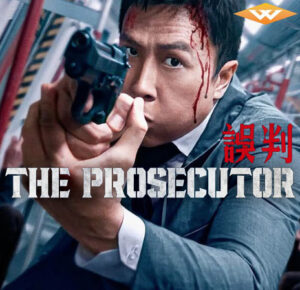
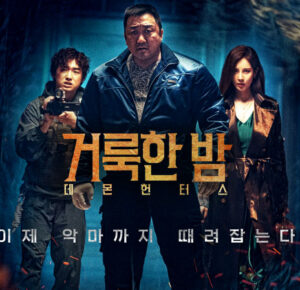


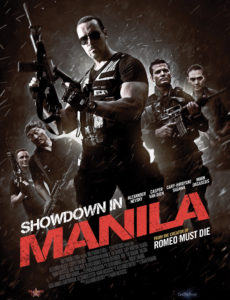



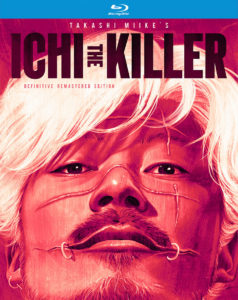
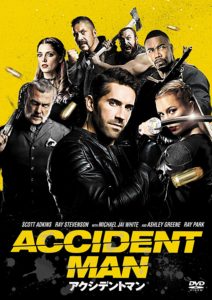
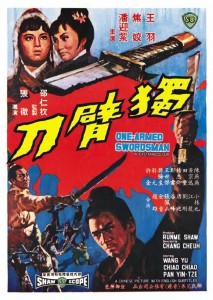

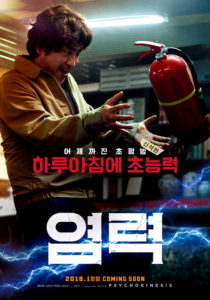
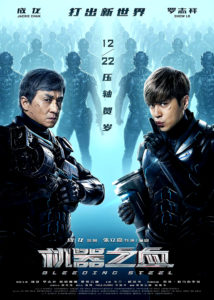
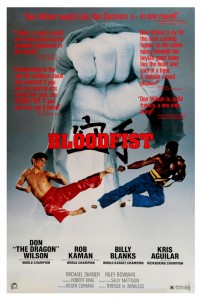
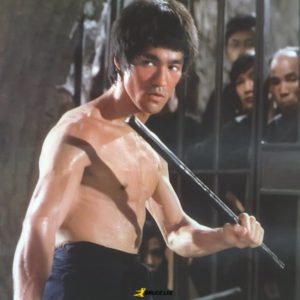
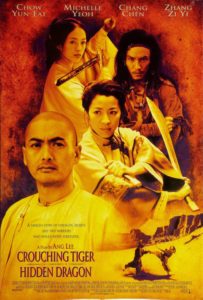
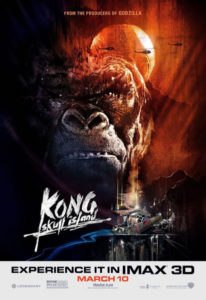
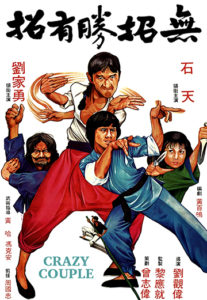



27 Comments